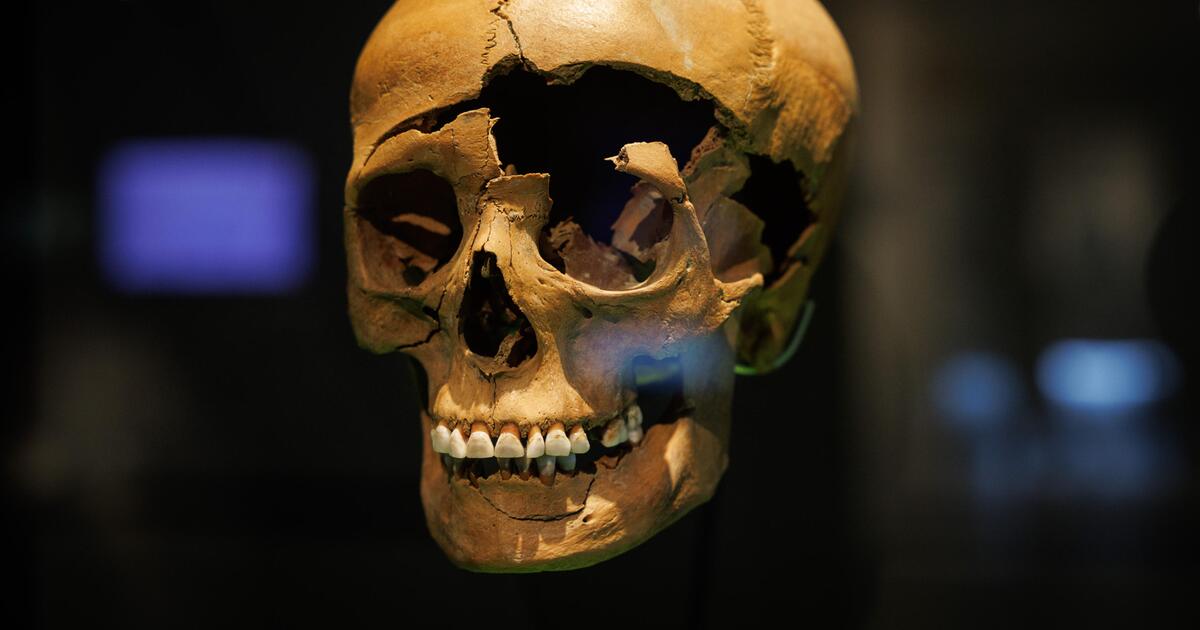The current study
Updated September 1, 2023 at 4:54 p.m
© 1&1 Mail & Media/Spot on News
Today there are about eight billion people on Earth. The fate of humanity was at stake.
According to a study, nearly 99 percent of humanity’s direct ancestors died about 900,000 years ago. At that time — long before the appearance of modern humans Homo sapiens — only about 1,300 individuals reproduced, an international research group writes in “Science” magazine.
This crisis lasted about 117 thousand years, and pushed humanity to the brink of extinction, according to the group, citing its calculations. The cause of the destruction may have been climate change.
Much of the genetic diversity has been lost
The team, led by Wangji Hu of the Chinese Academy of Sciences in Shanghai, based their calculations on analyzing the genomes of 3,154 contemporary people of different origins. Using a new and complex process for analyzing genetic variants, the researchers want to determine past population sizes.
Consequently, humanity – the ancestors of Homo sapiens, who appeared only 300,000 years ago – shrank by 98.7 percent from a population size of just under 100,000 individuals until about 930,000 years ago. After that, only about 1,280 individuals are said to have been bred.
Much of the genetic diversity has been lost. The so-called genetic bottleneck lasted for about 117 thousand years, until about 813 thousand years ago. The group then wrote that residents recovered very quickly. She speculates that this may be related to fire control.
Neanderthals may have lived as early as 1 million years ago
The team hypothesizes that the population decline affected the Homo erectus group, from which Neanderthals and Denisovans later evolved as well as Homo sapiens. However, this is by no means a consensus. In one Comment “Science”. London experts Nick Ashton of the British Museum and Chris Stringer of the Natural History Museum write that the last common ancestor of Homo sapiens, Neanderthals and Denisovans could have lived more than a million years ago. Several types can be considered.
Hu’s research team also interprets the fact that there are only a few fossil finds of humans from that stage as confirmation of the radical population decline. “This severe bottleneck could explain the extreme scarcity of hominin fossils in Africa and Eurasia from between 950,000 and 650,000 years ago,” the group wrote. It is said that Homo erectus, which was already widespread in Asia at the time, did not appear to be affected.
The team suspects that climate change is the cause of the population decline. About 900 thousand years ago, glaciers increased and became more permanent. This is said to have been accompanied by a drop in sea temperatures, prolonged drought, and fauna disturbances in Africa and Eurasia. (Walter Willems, dpa/mac)
Sources used:
- Science: Genomic inference of the severe human bottleneck during the early to middle Pleistocene transition
- Science: Did our ancestors almost die?
This discovery turns the theory of human evolution on its head: a skull discovered in Hubei Province indicates the existence of a previously unknown human species. © ProSiebenSat.1

“This is how editors work“It tells you when and about what we report, how we handle errors and where our content comes from. When reporting, we adhere to our guidelines Journalism Trust Initiative.
Teaser image: © Photo Alliance / German Press Agency / Friso Jentsch

“Typical entrepreneur. Lifelong beer expert. Hipster-friendly internet buff. Analyst. Social media enthusiast.”








More Stories
A boy finds a rare Lego octopus from a container that fell into the sea in 1997
SRF News Contest of the Week – News
Temperature and humidity: Kachelman explains the phenomenon